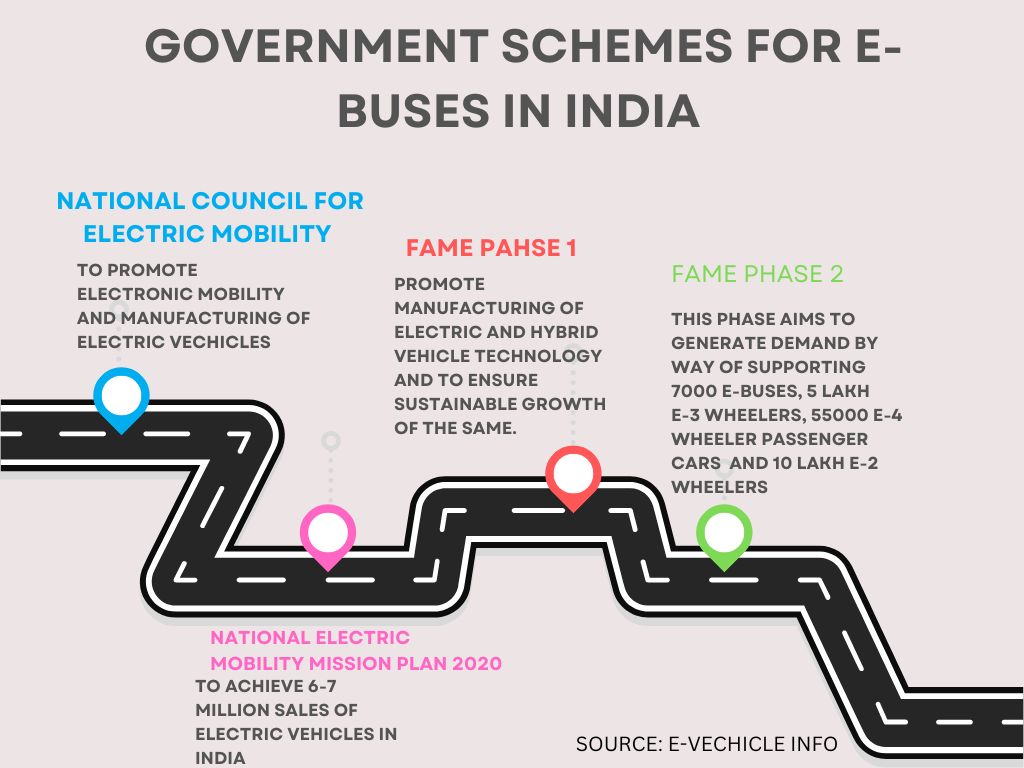The e-bus manufacturing companies hire their drivers privately. They are then required to pass a test to be eligible to drive the buses.
The drivers of the regular ICE (internal combustion engine) buses cannot drive the newly-launched electric buses because they are not employees of the companies that manufacture them and hire them out to the state transport corporation. The drivers of electric buses are private employees and are recruited by the respective e-bus manufacturing companies.
Switch Mobility, a subsidiary of Ashok Leyland has already introduced 100 buses and is going to introduce 200 more by the end of this year. The Bengaluru Metropolitan Transport Corporation (BMTC) also plans to acquire 1500 more electric buses in the next three years. The BMTC bus drivers feel that they may lose out on those jobs to the private players.
Mariam Megha Paul, Consultant, Global Green Growth Institute said that there is a need to upskill the drivers of the ICE models to meet with the growing demand of e-buses. The drivers are in the hope that the BMTC may change its rules on who gets to drive an e-bus in the future. “Our management will take appropriate measures. If the BMTC says we can also drive the e-buses then we will,” said a BMTC bus driver.
The recently-launched electric buses are run on a gross contract model where BMTC and private players operate together. Switch Mobility, a subsidiary of Ashok Leyland, and JBM Auto manufactures and supplies the e-buses and also provides drivers.
“In the gross contract model, the two companies maintain and own the buses. The drivers of the e-buses are hired by the companies and are private employees. The BMTC only provides infrastructure and electricity for the charging machines,” said Deputy Chief Traffic Manager, BMTC.

Raju PV, an electric bus driver for JBM Auto said, “Drivers of the normal buses (non-electric) say they would also like to drive electric buses.” He has been a driver for JBM for the last ten months. “I had to undergo training for five days where through demonstrations they showed us how to use the technology in the bus, like the switches. I found out about the recruitment from an advertisement by Parveen Travels,” he said. Parveen Travels was commissioned to recruit drivers for buses manufactured by JBM Auto.
There are over 200 bus drivers for 90 e-buses run by JBM Auto, said Arjun, Supervisor, Parveen Travels, stationed at Kengeri Bus Terminal. The drivers need to undergo training after which they have to pass a written test to be able to drive the buses. “The trainers come from Delhi and at the end of the training we conduct a written and driving test. The results are graded– A, B, C and fail. To get selected, you need to pass with either A or B grade,” said Arjun. “The minimum qualification is to have five years’ experience in driving heavy vehicles and be 27 to 28 years of age,” he said.

In the case of an accident, the contractors for the drivers will be liable. The deputy traffic manager also said that the buses are covered by insurance, so it is the responsibility of the insurance companies.
Amogh A, Founder, Friends of BMTC Telegram group said that the special aspect of electric buses is that there is no noise and no jerks; it is a smooth and comfortable ride. He also said that the hybrid model is a good move. “The BMTC has been facing a financial crunch for some time now. The new model is a good step as they can save up and pay their existing employees,” he said.
However, the current procurement model for electric buses is not sustainable in the long run, said Mariam. The city has introduced e-buses as part of the center’s FAME-2 (Faster Adoption and Manufacturing of Electric Vehicles) scheme. The scheme provides financial assistance by way of subsidies for faster adoption of electric and hybrid vehicles for which a budget of Rs. 10,000 crores has been allotted.

“The states are ultimately dependent on subsidies being provided by the centre. Automobile manufacturers are manufacturing on the belief that the scheme will be extended for a longer period. They do not have any surety on what will happen after FAME ends. This is why many four-wheeler electric vehicle manufactures are hesitant to enter the Indian market,” she said.



I enjoyed reading this article! There is so much passion in the way the subject is handled. Proper formatting of sentences and very informative piece of news.
Very informative article written very succinctly on the challenges faced by ICE bus drives in the advent of electric (FAME) adoption and how it’s shaping in the midst of privatization whether it’s hiring, training, insurance and more in that felt. I think it’s a wonderful article which introduces the 360 degree view of what’s happening at the ground level.
Thanks for introducing me to this subject.